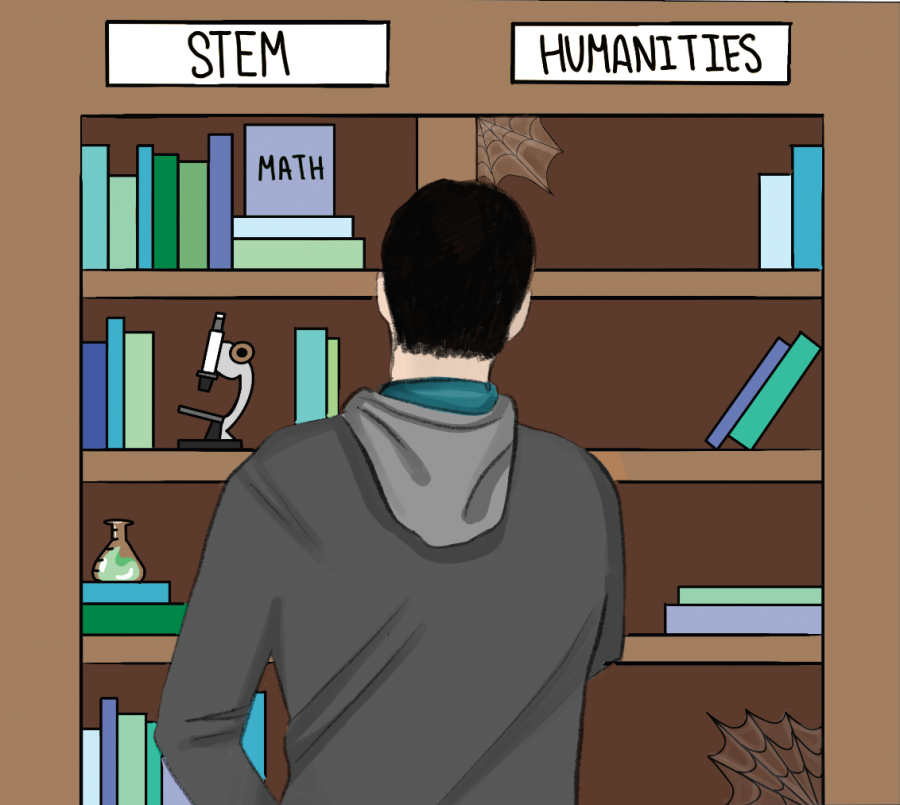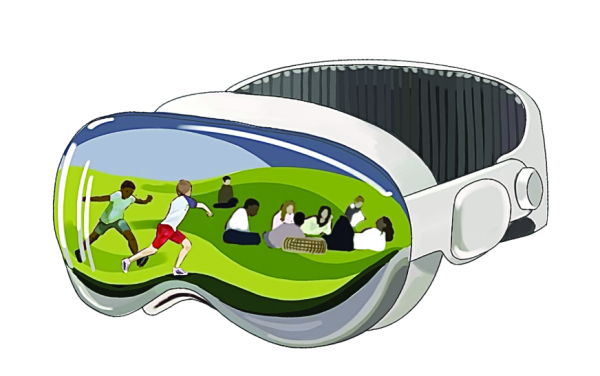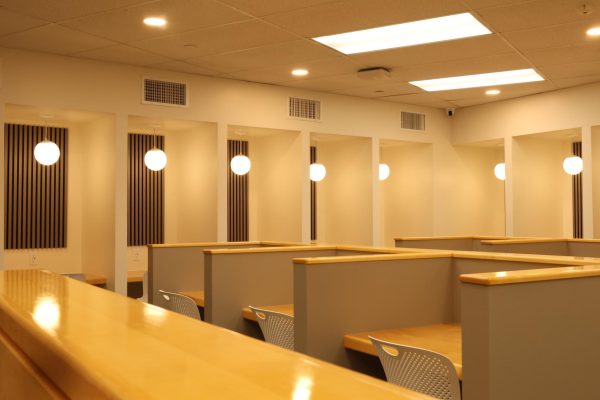Remove all AP classes
A student stands in front of a bookshelf that represents courses at the school. There is a lack of humanity opportunities for students to choose from.
January 3, 2023
The school has decided to slowly shift away from Advanced Placement (AP) courses, beginning mostly with the humanities. While the removal of APs is beneficial to students, the current methodology will end up discouraging students from taking humanities courses.
The school’s new AP policy eliminates AP United States History, AP English Language, AP English Literature and AP Computer Science A, replacing these courses with equally rigorous advanced and honors courses.
The school has been in the process of phasing out AP classes for a while, a movement initiated by many other preparatory schools like Phillips Exeter Academy . While the AP curriculum does limit teachers and isn’t feasible for some courses like biology and history , getting rid of core humanities APs while maintaining them for STEM will deter humanities-inclined students from taking the new advanced humanities courses in the future.
Many difficult STEM APs are still offered by the school, like AP Chemistry, AP Calculus BC and AP Physics C: Electricity and Magnetism. Even though the school communicates any AP changes with the student body well, many students are still insistent on taking as many APs as possible. Because of this, students will shift to STEM classes to fulfill the AP cap. The student obsession with APs is by no means the fault of the school, yet the slow movement away will create a void of students in the new advanced humanities courses.
The school aims to create a new generation of leaders, and humanities kids are essential for this mission. Whether that ranges from political leaders to lawyers, encouraging students to study humanities can be accomplished by getting rid of all APs rather than only offering STEM ones. Kutler Center courses offer students the opportunity to pursue a niche, but most of these are not advanced or honors level. If the school wants to phase out AP courses , which is arguably the right decision by encouraging students to take classes they’re passionate in , it needs to get rid of all APs, including both STEM and humanities courses.
Although some STEM APs work well for departments at the school, retaining them ends up damaging the humanities program. While STEM department heads have said that the AP curriculum does not limit certain science or math classes the way it does in English or history, STEM classes can still move away from the AP designation while utilizing College Board’s public materials and curricular frameworks, which will prevent any consequences to the humanities. Some STEM classes still spend time preparing their students for the exam; without the AP designation, classes can teach more content to their students instead of reviewing.
Moving forward, STEM students and teachers need to advocate that their AP classes shift toward honors and advanced courses; this is important in preserving a balance between humanities and STEM students. For humanities students, now that there are fewer restrictions with the CollegeBoard curriculum, a lot of beneficial changes can be implemented. For example, United States History can be taught from a multitude of perspectives. An idea that can now be implemented without an AP designation is for students to select what part of United States History interests them the most, such as economics and social and racial politics. They can then be matched to a corresponding teacher who tends to focus on that aspect since courses are no longer based on an outsourced, standardized curriculum.
The shift away from AP courses is a decision beneficial to many teachers and students, but the new should eliminate STEM APs and eventually all APs to maintain balance and fairness within the school.






































